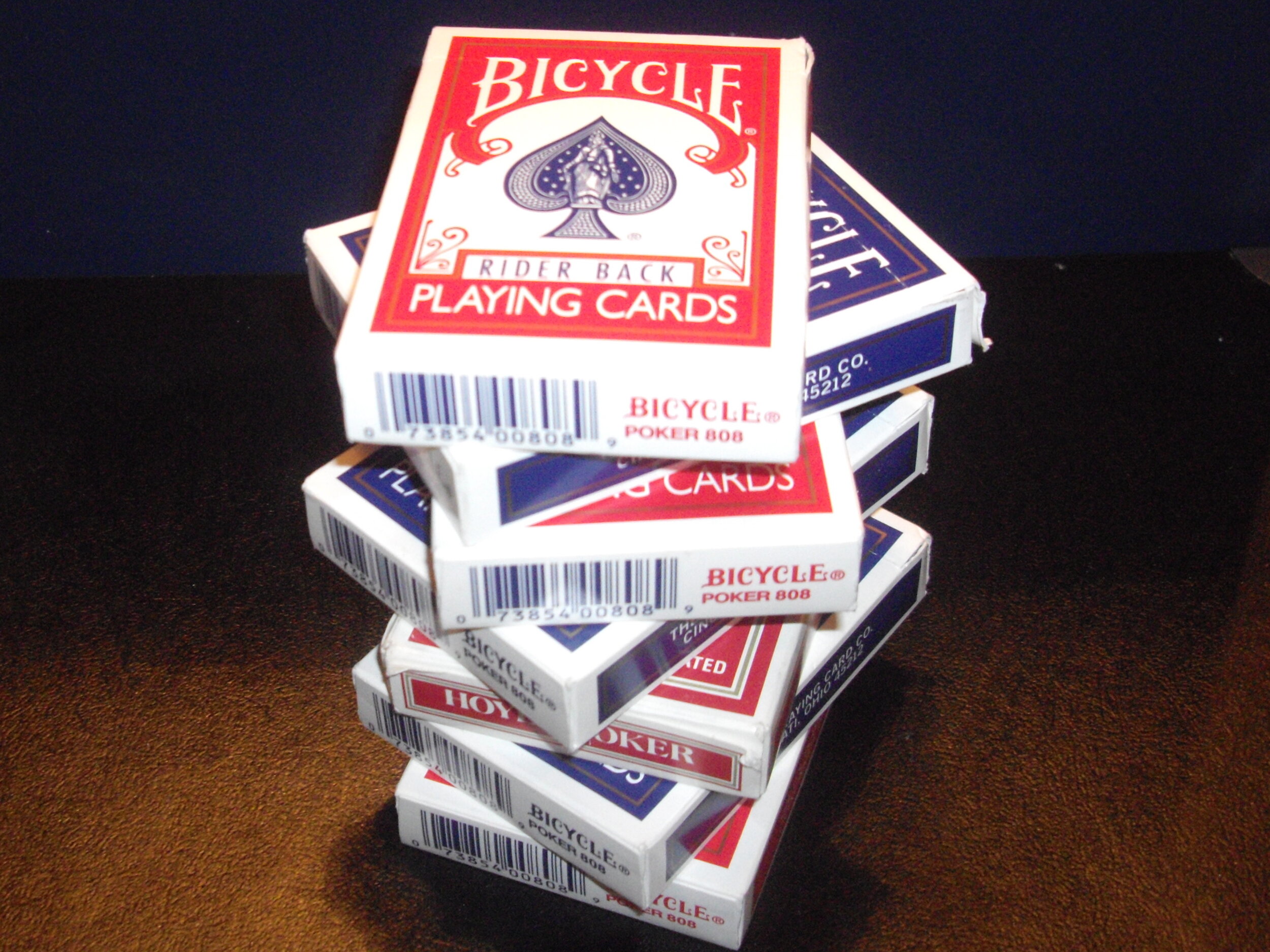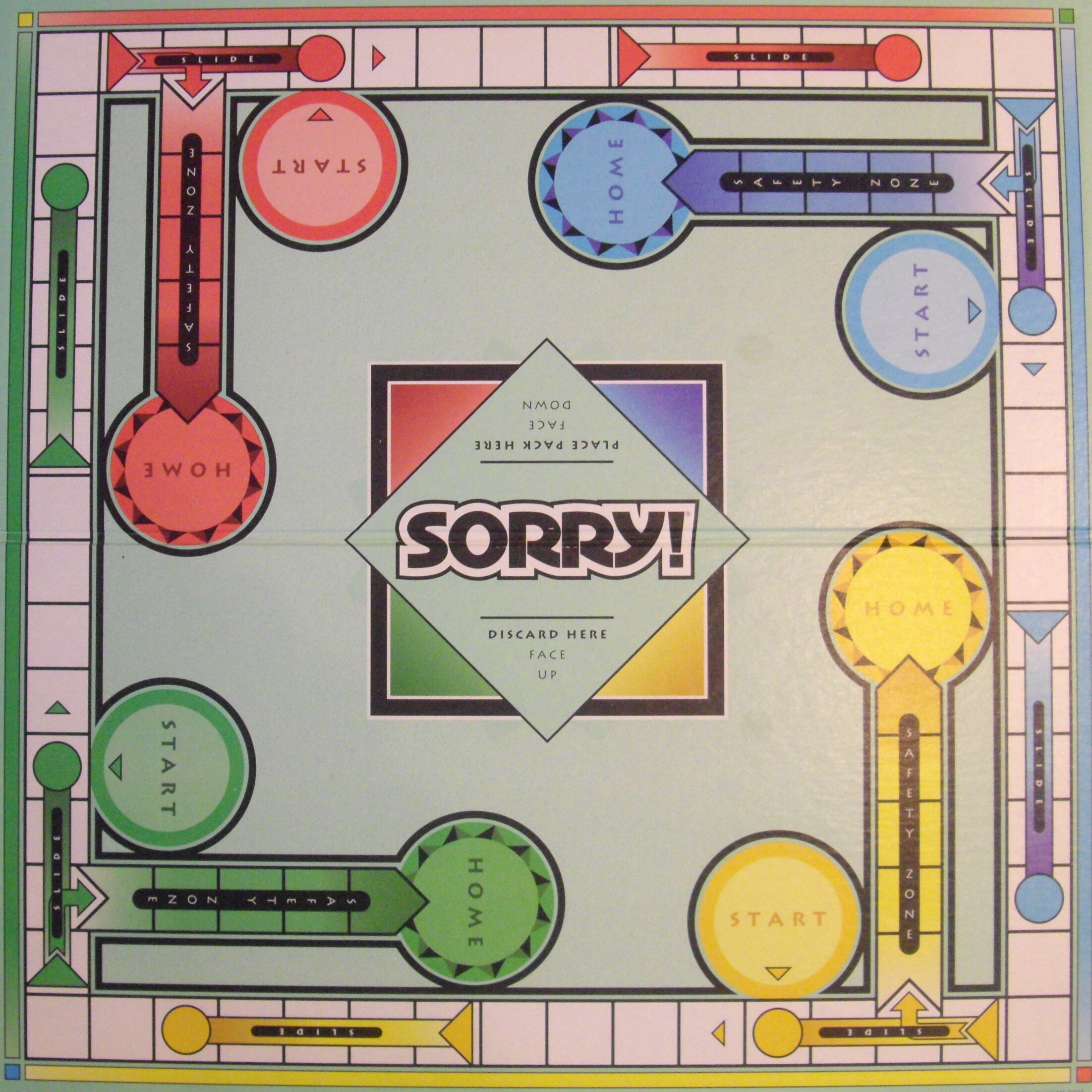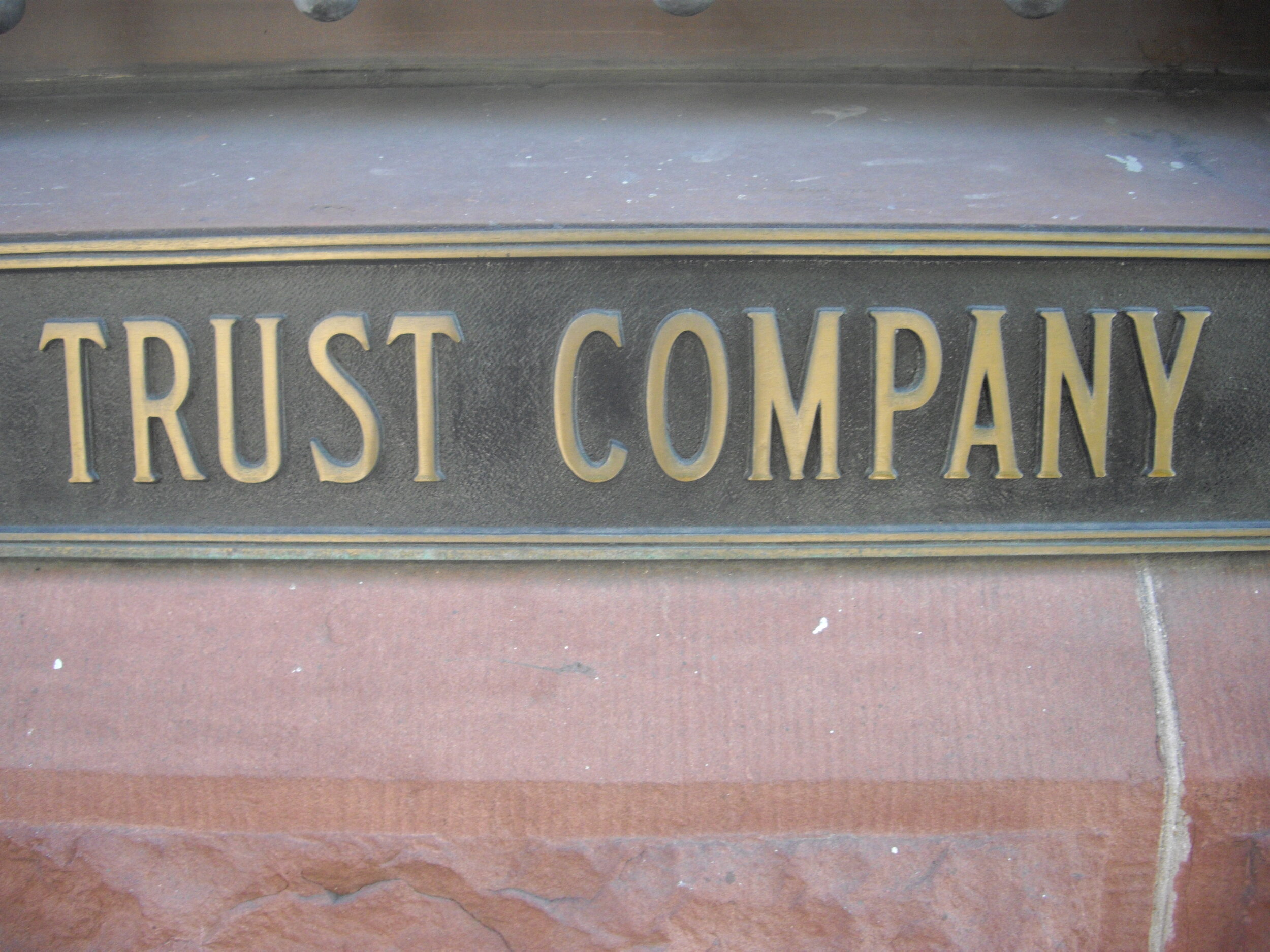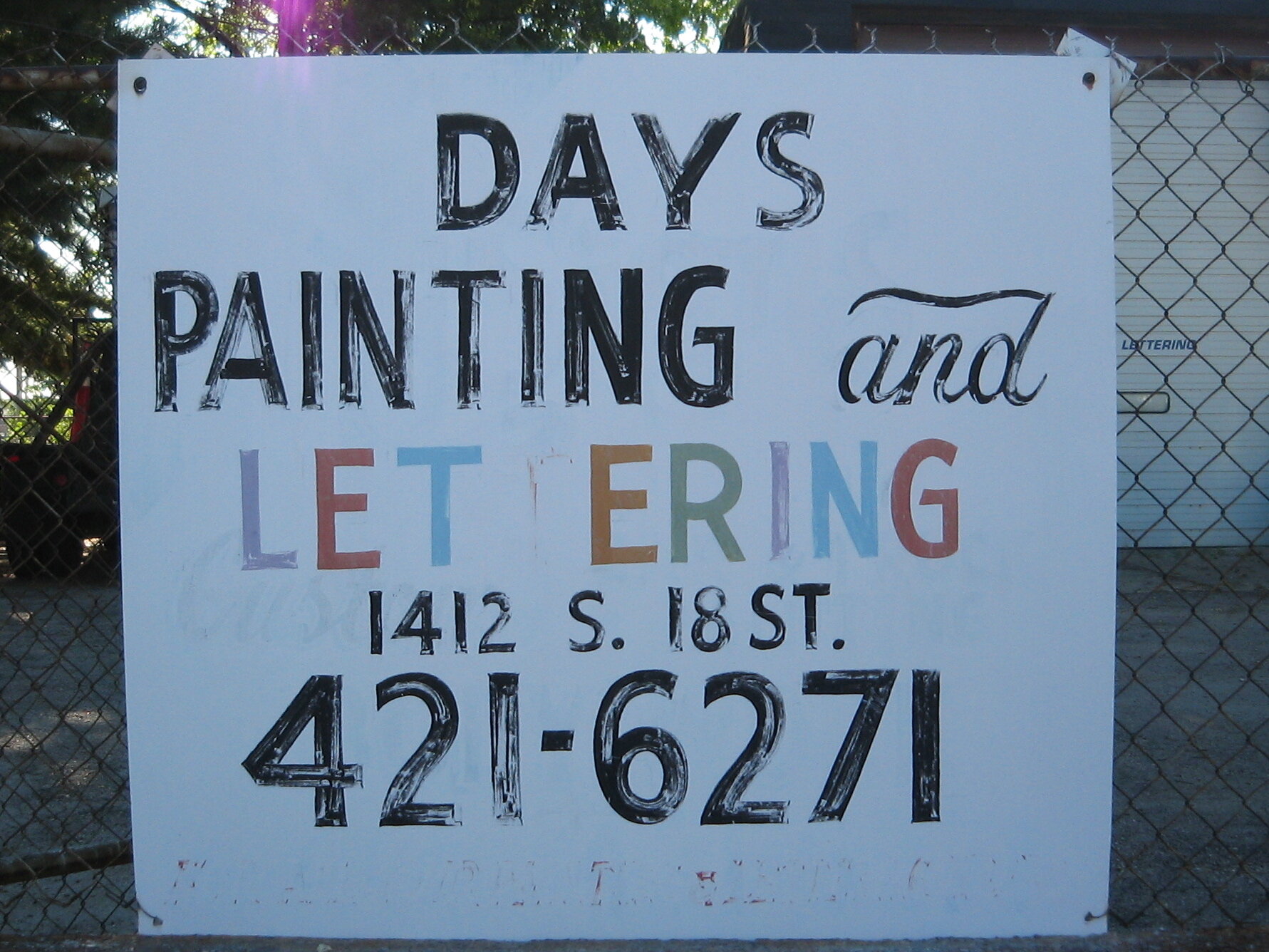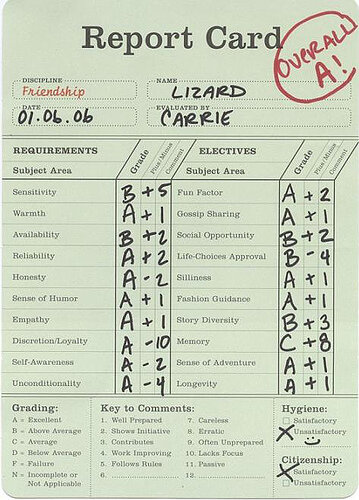Resolve to Let Clients Set Your Price
I've been using my "You Decide" fill-in-the-blank invoice, for over a year now. In that time, I've found time and time again that my clients pay me more than I would have charged them. And, in situations where clients demand a fixed price, I'm quoting them much higher prices (coupled with a money-back guarantee) than I would have before my invoice experiment.
Even though I've been doing flat-fee work for almost a decade, I used to (even subconsciously) focus on the time it took me to do something. Now, everything I do is focused on delivering the biggest "bang" for my clients, knowing that the "bucks" will come. I don't track phone calls, preparation time or limit meetings, and I don't charge for materials, travel, meals or other expenses. In short, I trust that my clients will take care of me if I take care of them -- and they always do.
In 2010, I'd encourage you to resolve to let your clients set your price -- at least once. Ask a trusted client to list all the services they'd like you to provide for them. Suggest unlimited phone calls, regular meetings, document reviews, etc. Provide all these services to them for a month's time. Then, ask them what they're willing to pay for all the work you've done.
You may find your clients value your services more than you do.
Resolve to Support the Causes Your Clients Do
If you've got a big client, odds are they've got a pet project. Whether it is for a community organization, charity, civic group or volunteer event, supporting the causes your clients do can deepen your relationship with them while benefiting those in need.
That's why, in 2010 you need to Resolve to Take Care of Clients' Pet Projects. For every client, find out what kinds of charitable groups or causes they support (and why). Armed with this knowledge, here are a few things you can do:
- Get on the group's mailing list, so you'll always know how you can help.
- Donate money or goods to the cause's auction in your client's name.
- Instead of spending your time entertaining your clients, spend that time volunteering with them in support of their cause. You'll get the same one-on-one time with the client, but will be helping out those in need. As a extra bonus, you'll probably also get an introduction to several of your client's peers.
- Find out what is the most pressing legal issue facing the cause (or its members), and offer to give a seminar to help them understand it better.
- Donate a percentage of that client's fees to their cause as your holiday gift the client.
Your clients will not only appreciate your interest in their cause, but you might gain an interest in theirs. When that happens, everybody wins.
Resolve to Land a Big Fish
Almost every lawyer has a "big fish" they'd like to land. Whether that fish is an individual client, a corporation, an insurance company or even a great referral source, your big fish isn't going to catch itself.
And what better place to find advice on catching "big fish" than on a website called TakeMeFishing? Some fishing wisdom to keep in mind when you're Resolving to Land a Big Fish:
The cool thing about fishing is that there are hundreds of species of fish to catch. What's even cooler is that there are multiple ways to catch a particular kind of fish.
You'll soon learn that when it's a bad day for fishing in one location, it could be a good day in another, and the locations may not be far apart.
You don't have to travel far or spend a lot of money to find a body of water with fish you can catch.
Don't be anxious. Even if you get the fish close to the boat, that doesn't mean it's done fighting.
It takes a lot of experience to know when to set the hook. It also takes a lot of patience.
Some fish will nibble on your bait or lure, causing your line to tick or wiggle. And some fish will try to swallow the entire bait, hook and rig all at once with one big hit.
Different fish strike differently. And the same fish will go after your bait differently depending on the time of day or time of year.
Fish spoil quickly if you don't handle them properly from the moment you land them.
So as you plan on landing one big fish in 2010, make certain you're prepared: know who they are, where they hang out, what you'll use to attract them and what you'll do with them once they're caught.
Know the answers to each of these questions before you "go fishing" for big fish, or all you will end up catching are small ones you'd rather throw back.
Resolutions, Revisited.
Last year, I posted Ten Resolutions for the New Year on this blog. Reading it again, I realized it is one of my all-time favorite posts -- and mirrors my own personal resolutions for 2010 and beyond.
I wanted to share it with you again this year. I hope you enjoy it.
1. Resolve to be better to everyone. Start with yourself.
2. Resolve to choose your customers as carefully as friends, knowing that you’ll work best when they’re one in the same.
3. Resolve to know your business better. Recognize that being good atwhat you do is unimportant if you’re not good at being in the businessyou’re in.
4. Resolve to stop doing the things your customersdon’t pay you to do, unless you love doing them so much, you’d do themfor free. Because you are.
5. Resolve to value your life by the things you experience instead of the things you possess.
6. Resolve to eliminate the things in your life that wake you up in themiddle of the night -- unless you’re married to them, or they need togo outside for a walk.
7. Resolve to become more useful to yourcustomers. Stop thinking about what they expect from you, and focusinstead on what they don’t expect from you.
8. Resolve tohelp the people who work with you (and for you) become better at whatthey do. Give them what they need to excel at their jobs, and you’llfind you’re more likely to excel at yours.
9. Resolve tounderstand the difference between what you do for clients and how longyou take to do it. They care about the former, and can’t understandwhy you charge for the latter.
10. Resolve to do the work youlong to do, instead of the work you’ve been doing for too long. Followyour passions, honor your principles and strive to add value to everyrelationship you’re in. “Next Year” begins now. Get started on makingit great!
Resolve to Count Cards
As 2009 draws to a close, we all find ourselves with lots of stuff on our "to do" lists for the next year. Whether your thinking about finding time to meet your deadlines, accomplish your goals or even follow your resolutions, there never seems to be enough time to do it all.
As you begin 2010, Resolve to Count Cards, using this this incredibly powerful exercise I first ran across in 2006. From an article in the now-defunct Worthwhile Magazine (by creativity guru Eric Maisel) comes this gem:
Get seven decks of cards with similar backs. Lay out all sevendecks on your living room rug, backs showing. This is a year of days(give or take). Let the magnitude of a year sink in. Experience thiswonderful availability of time. (This is a powerful exercise.)
Carefully count the number of days between two widely-separatedholidays, for instance New Year's Day and the Fourth of July. Envisionstarting a large project on that first holiday (today!) and completingit by the second.
It also works great with clients! Give it a try.
Resolve to Apologize Better
Everyone makes mistakes. Even lawyers. That's why, in 2010, you should Resolve to Apologize Better.
Why apologize? Apologies increase client loyalty and reduce malpractice exposure. But how do you apologize better? Practice!
Here's a great guide from Psychology Today (about apologizing to women) that sets out the six mandatory elements a good apology:
1. Acknowledge the Wrongful Act
2. Acknowledge that You Have [Caused Harm].
3. Express Your Remorse
4. State Your Intention Not to Repeat
5. Offer to Make Amends
6. Seek Forgiveness
Read the entire article for examples of language you should and shouldn't use, and practice apologizing. You may find a well-timed apologize helps you as much as it helps your relationship with your client.
Resolve to Keep Your Promises
Most of us don't break our promises on purpose. But as anyone with a seven-year old can attest ("But daddy, you promised!"), promises are in the mind of the beholder. Too often, we fail to realize someone else believed our vague pronouncement committed us to a concrete course of action.
Since keeping your promises begins with knowing whether you've made one or not, in 2010 resolve to know (and keep) your promises better. Never end a client conversation without asking them these two questions:
- What have I agreed to do, and when do you expect me to do it?
- What have I have promised (or predicted) will happen, and when do you expect it to?
Hearing their answers to these questions will help you know if they are hearing what you think you're saying. Most importantly, you'll stop making (unintentional) promises you can't keep. Now, if it would only work with seven-year old little girls....
Resolve To Fix Your Technology Less
This resolution is for nearly every solo and small firm lawyer out there (including those with computer science degrees): Resolve to Fix Your Technology Less.
How many times has a quick technology fix turned into a day of un-billable time? Trust me on this one, no matter how much (or little) work you have, your time is better spent building your business and serving your clients than it is crawling around on the floor underneath your desk repairing your computers or troubleshooting your network.
Need help remembering this resolution? Try this simple trick:
Everywhere in your office where you have technology (on the copier, on the network switch or router, and on every computer) tape a label that has the following information on it:
- Your hourly rate
- The hourly rate of your tech-support person
- Their phone number
Now every time you're tempted to "fix" something yourself, call in the experts instead. You'll find that you (and your technology) will be happier and more productive when you spend your time doing your job instead of doing someone else's.
Resolve to De-Confuse Clients
What confuses your clients? What are the things that your clients never seem to really understand? Is it the directions to your office, your retainer agreement or their monthly bill?
No matter how much you deserve it, undivided attention from clients is a rarity today. Whether it is because of their email pinging, cell phones ringing or children screaming, you're getting less attention from clients now then ever before -- and a distracted client is far more likely to be a confused one.
That's why, in 2010, you should resolve to make every communication you have with clients (both in person and via mail/email) less confusing.
Start by asking every client in every meeting if there is something you could have made clearer and easier to understand, and pay attention to the things you explain over and over again. Next, pick one of those things each month to "de-confuse" for your clients.
Whether you use photographs more, rewrite your retainer agreement so a sixth-grader can understand it or complete a "Frequently Asked Questions" handout, by the end of 2010, you'll find your less-confused clients are easier to serve and more satisfied with you.
Resolve to See Yourself as Others Do
How do your customers see you? When they arrive for a meeting, what do they experience? What do they see? How do they feel?
Do you work in a deadline-driven practice area, yet always show up late for appointments? Is your office strewn with other clients' files? Are there piles of unread letters in you in-box? Do your secretaries and staff regularly discuss confidential matters on the phone that people in your waiting room can hear?
Do you have magazines that your clients want to read? Do you have complementary wi-fi for them to use while they wait for you? Do you offer them more to drink than just coffee?
Don't think your clients pay attention to these things? You're wrong. And they're not just comparing their experience to the ones they've had with other lawyers -- they're comparing it to the experiences they've had with everyone.
So, in 2010, Resolve to See Yourself as Others Do. Start by asking a friend your staff doesn't know to sit in your waiting room for an hour while you're "busy." Ask them to pay attention to what they see, hear, smell and feel, while recording the things they'd improve. Once you've gotten their list of things to fix -- and there will be things on the list you've never noticed -- work with your staff to fix them.
Resolve to Juggle Less
This is one for the general practitioners out there: Resolve to Juggle Less. Remember, your clients don't have "general" problems, they have specific ones -- and if you're the lawyer who will do "anything for anyone" they are far less likely to hire you do that "one thing" for them.
So, how do you know if you're doing too many things? Here's an exercise that just might help:
- Take a pad of Post-It notes, and on each one, write a type of matter you handle. Err on the side of inclusiveness (write "Divorce," "Child Custody," "Legal Separations," etc. on separate notes instead of just "Family Law").
- Put all the Post-Its up on a wall.
- Ask your staff to add the kinds of things you do to the wall as well.
- Group the post-its in logical categories.
- Step back and look at the wall.
If there are more than 3 groups of Post-Its in front of you, you're probably doing too many different things.
In 2010, work hard to focus on the one or two categories that are most profitable, most challenging and most fun. You'll have a much easier time finding clients, and a much better time serving them.
Resolve to Ask Current Clients More
If you're a lawyer who only surveys your clients once the engagement's over, you're leaving a lot of information on the table -- information that will not only help you serve future clients, but your current ones as well.
That's why, in 2010, you should Resolve To Ask Current Clients More. Institute a regular, ongoing client survey process that reaches out to your current clients at least quarterly.
But what kinds of questions should you ask? I've put together the LexThink Model Client Survey (pdf) that contains four short questions for your current clients.
The questions are:
1. On a scale of 1 - 10 (with 10 being best), how well are you being served by this firm, our lawyers and staff.
How could we earn a higher score from you?
2. On a scale of 1 - 10 (with 10 being most likely), how likely you are to recommend us to your peers?
When you describe us to your peers (if you do), what are some of the words you use?
3. What one change could we make to our firm to earn more business from you?
4. What is your most pressing challenge (business, legal or otherwise) you’d like to overcome in the upcoming year?
Resolve to Do One Big Thing
If you asked your clients identify the biggest change you've made in your business in 2009, what would their answer be? Would they be able to name anything (besides your rate) that you've done differently in the past 12 months? Would you?
For 2010, I challenge you to resolve to make a change in your business your clients can't help noticing. Not sure what to change? Ask them.
Send each client a letter the first week of 2010 that says:
Dear client,
As the New Year arrives, we are grateful for the opportunity to continue to serve you. For 2010, we're resolving to serve you better. That's why we're asking all our clients the following question:
If you could make one change in our business, what would it be?
Nothing's off the table. If you think we need to charge differently, stay open longer, use different technology, or even answer the phone faster, let us know. We're committed to making our business better for your business.
We'll collect the answers, and post them in our office for everyone to see. On January 31, we'll choose (at least) one to implement in 2010. Of course, we'll keep you up to date on our progress, and may ask you for some help in getting everything "just right."
Thanks again for being our client -- and for helping us to become the law firm you deserve!
Once all the responses are in, consider hosting a "Resolution Party" to sort through and prioritize the responses with your clients. And don't forget to ask them for their resolutions for their own businesses -- you may just find a few things you can help them with, too.
Resolve to Let Your Clients Grade You
Once you've asked your clients what they expect from you, let them grade you on it. Here's how:
- Make a list of 3-5 non-negotiable "Client Commitments" that you and your firm promise to keep in every matter with every client.
- Share those Commitments on your website and in every engagement agreement.
- With every bill (or at least quarterly), send your clients an old-fashioned "Report Card" that asks them to give you a grade on each of your Client Commitments.
- Follow up with the client each time you get a B or below to find out about specific ways you can improve.
- At least yearly, schedule a "parent-teacher" conference to review your performance with the client.
- Consider refunding part of your fees every time a client gives you a C or D -- and think seriously about giving a client's entire fee back (and helping them find another lawyer) when they've "failed" you, because you've probably failed them
Resolve to Measure What Your Clients Treasure
I doubt that if you asked your clients what they buy from you that they'd answer, "Time." Yet because (many of) you sell time to them, it is often the only thing that you measure with any rigor.
In 2010, Resolve to Measure What Your Clients Treasure. Start by asking every client this question:
"How will you measure your satisfaction with us as we serve you?"
Don't settle for an answer that depends completely on the end result. Instead, press for answers like "By always keeping me up to date," and "Returning my phone calls promptly."
Once you've identified at least two things most of your clients want from you, begin to measure how well you're doing them. Your clients already are.
Resolve to Know Your Best Clients Better

Now that you've identified your worst clients, fired them, and stopped taking more like them, you can now focus your time and energy on building your practice doing the kinds of things you like to do for clients that you enjoy serving.
And the first step to take is to get to know your best clients better. Identify your seven favorite clients, past or present. Take them to lunch or dinner in person (or over the phone) and get to know them.
Make your time together about them. Tell them they're one of your favorite all-time clients and you wanted to catch up. Learn about their plans for the new year and the challenges they're facing. Talk about their family and hobbies. Find out about the charities they care about and the professional organizations they belong to.
But don't stop there. The more you know about your clients, the better you'll be able to serve them. A great list of things to could/should know about your clients is the "Mackay 66" (pdf download here).
And at the end of each conversation, don't forget to ask:
How do I find more clients like you?
Resolve to Trust Your Gut
Every time you interview a potential client, you have a "gut" feeling on whether they will be a good client or a bad one. Unfortunately, too many lawyers ignore our gut, and end up paying for it in the end.
Today's resolution is to Trust Your Gut. Don't ignore those uneasy feelings you (or your staff) have about potential clients. Instead, pay attention to them, and trust yourself to differentiate good clients from bad.
To help you trust your gut better, I've created a LexThink Client Worthiness Index Worksheet (links to .pdf) for you to use every time you interview a potential client. Fill in the blanks (and ask your staff to help) after your meeting, and you'll come up with a "Client Worthiness" number between 1-100. Do your best to take clients scoring 75 or better, and you'll weed out the bad ones before it is too late.
Resolve to Fire Better
In yesterday's resolution I encouraged you to understand what makes your bad clients bad, and avoid taking any more like them. But what do you do with the terrible clients that are already on your books? Fire them!
Sounds easy, but the reason so many lawyers continue to serve clients they shouldn't is that it is uncomfortable/awkward/difficult/etc. to let those bad clients go -- especially early in the relationship when we know the client is a difficult one, but promise ourselves they'll improve. Sound familiar?
So today's resolution is an easy one: Resolve to Fire Better. Start by reviewing the ethics rules in your jurisdiction regarding termination of the attorney-client relationship, and then:
- Add a "Client Expectations" section to your retainer agreement that sets out the kinds of things you expect from your clients and the things they're prohibited from doing (like belittling your staff, constantly canceling appointments, etc.).
- Draft three form letters (first warning, stern reminder, and "You're Fired!") that you can pull out on a moment's notice and use with minimal modification when clients deserve one.
- Write a script of the what you'll say when you tell the client they're fired.
- Practice your script! Difficult conversations become less so when you're accustomed to having them.
Once you've cleaned out your waiting room, you'll be able to start focusing on the clients you love to serve, and on building your practice to serve them better. More on that in tomorrow's resolution.
(Thanks to Julie A. Fleming, who's comment on yesterday's post contained some great advice on firing clients.)
Resolve to Understand Your Worst Clients

Admit it, you have clients you hate. Whether they're not paying you, always coming up with excuses for not following your advice, or belittling your staff, your worst clients don't deserve your best work and probably aren't getting it anyway. Their work is the last you do, and their calls are the last youreturn. You wake up worried about their file, but then find a myriadof excuses to avoid touching it all day. Your worst clients sap your energy and take the fun out of practicing law.
So, in 2010, I challenge you to resolve to understand your worst clients better. This isn't about liking them, but about avoiding more like them. Here's how:
1. Identify your 10 worst clients (past and present).
2. List at least three things they all share in common -- things like the warning signals you ignored when they hired you, the kind of problems they asked you to solve, or even the type of lawyer on the other side of the case.
3. Title the list: "Types of Clients and Cases I'll Never Take Again."
4. Review the list before every potential client interview, and think twice before taking on another "worst" client.
Once you've resolved to understand the kinds of clients you hate to serve, you can start building your practice around serving the clients you love.
Resolutions are Back!
In the first few years of this blog, every December, I'd share one "resolution" each day of the month (here are the ones from 2004, 2005 and 2006). The purpose of the posts was to give my readers a handful of things they could implement in the coming year to make their practices better. I skipped 2007, and did a single Ten Resolutions for Lawyers post last year.
Since one of my resolutions for 2010 is to write more, I figured this was a good time to get the series running again. Between today and the end of the year, look for 31 "Resolutions" focused on identifying your best clients and serving them better. Some you've seen before on this blog, and some are new. I hope you enjoy them all.




